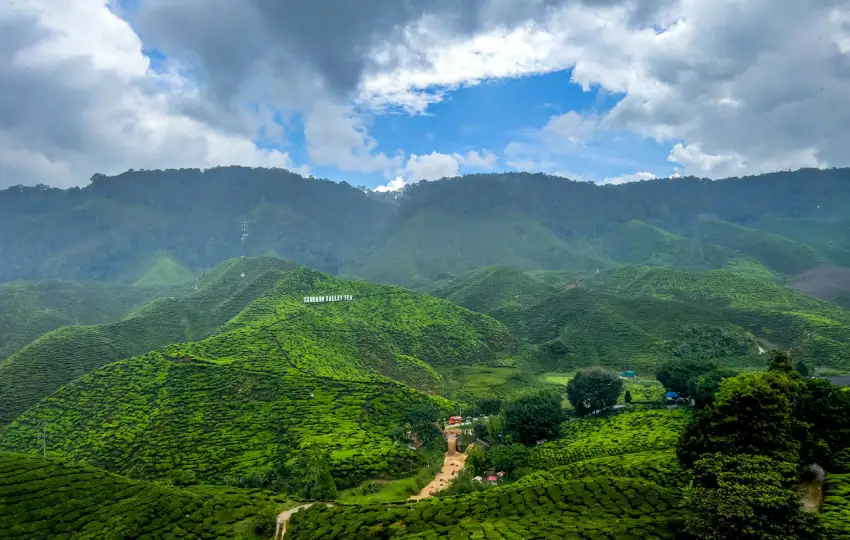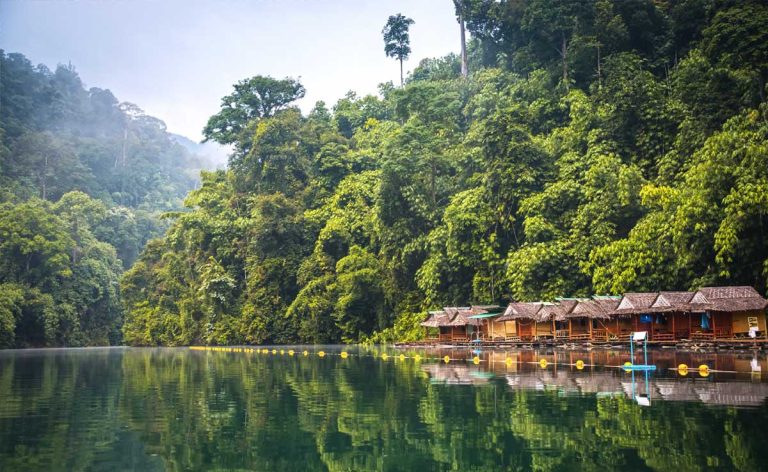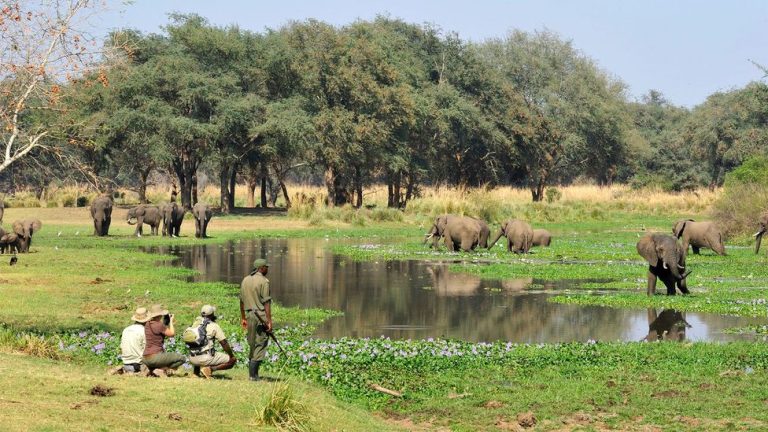In a planet increasingly dominated by climate change, deforestation, pollution, and overuse of resources, many are turning to more conscious and sustainable living. For Nigerians who want to explore the world, travel responsibly, or even emigrate, eco villages offer a revolutionary and motivating alternative. Based on ecological integrity, cooperation, and sustainability values that can benefit not only individuals but also society these unique communities are coming into existence.
This comprehensive article explores eco villages all over the world, why they exist, how Nigerians can get there through travel, volunteering or even residence, and what we can learn to apply in our own communities.
What Are Eco Villages?
Eco villages are mindful villages that strive to live sustainably by embracing ecological construction, renewable resources, community decision-making, organic agriculture, and holistic living practices. They typically feature:
- Environmentally sustainable dwellings (e.g., earth houses, straw-bale houses, etc.)
- Permaculture and regenerative agriculture
- Recycling and composting waste
- Shared resources (transport, energy, food)
- Renewable energy systems like solar and wind
- Decision making at the community level
These villages exist in rural and urban settings and can vary from a few households to several hundred residents.
Why Nigerians Should Be Concerned with Eco Villages
1. Environmental Solutions for Nigeria
Nigeria also faces critical environmental challenges such as desertification in the north, flooding in the south, city pollution, and urbanization. Eco villages have replicable models of autarky, water conservation, waste management, and communally sustained agriculture that can deliver effective solutions.
2. Travel With a Purpose
Eco-village tourism and volunteering offer a more hands-on experience than typical sightseeing. Instead of luxury resorts or expensive tourist traps, you live with locals, work the land, and learn practical eco-skills.
3. Relocation and Lifestyle Change
For Nigerians who wish to relocate abroad for a better quality of life or living with meaning, eco villages offer a healthy, affordable, and community-based option. Some offer long-term residence, volunteering, or even co-ownership.
Top Eco Villages Nigerians Can Visit or Move To
Here are some of the world’s most successful and inspiring eco villages that Nigerians can visit, volunteer, or even migrate to:
1. Auroville, India
- Location: Tamil Nadu, South India
- Founded: 1968
- Residents: 3,000+ from 59 nations
Auroville is a global town founded on the principles of human unity and sustainability. It is built on the concepts of eco-architecture, renewable energy resources, organic farms, and a spiritual center called the Matrimandir.
What to Learn:
- Permaculture, seed saving, green building
- Solar power and wind harvesting
- Community management and spirituality
Travel Info:
- Visa: Tourist or Student Visa (available online)
- Best Time to Visit: November to March
- Website: auroville.org
2. Findhorn Foundation, Scotland
- Location: Near Inverness, Scotland
- Founded: 1962
Findhorn is a spiritual eco village centered on renewable energy and sustainable building. It has pioneered ecological sewage systems, eco homes, and wind power.
What to Learn:
- Eco-construction
- Communal decision-making
- Organic gardening
Travel Info:
- Visa: UK Visitor Visa (apply through gov.uk)
- Program: Ecovillage Experience Week
- Best Time: Summer months (June to August)
3. Tamera, Portugal
- Location: Alentejo region, Portugal
- Founded: 1995
Tamera is a peace research-focused eco village based on regenerative landscapes, love ethics, and sustainable technology.
What to Learn:
- Solar power technologies and local power
- Ecological water systems
- Peace construction and inner practices
Travel Info:
- Visa: Schengen visa (90 days within the EU)
- Best Time: April to October
- Website: tamera.org
4. Damanhur, Italy
- Location: North Italy (Piedmont)
- Founded: 1975
This unique society is renowned for combining environmental harmony with arts, spirituality, and architecture, for example, temples underground.
What to Learn:
- Renewable energy systems
- Spiritual communal life
- Biodynamic agriculture
Travel Info:
- Visa: Schengen visa
- Languages: Italian and English
- Website: damanhur.org
5. Crystal Waters, Australia
- Location: Queensland, Australia
- Founded: 1987
One of the world’s earliest permacultures eco villages, Crystal Waters provides a self-sufficient lifestyle with a high emphasis on green agriculture and communal spaces.
What to Learn:
- Permaculture farming
- Composting systems
- Green building materials
Travel Info:
- Visa: Visitor visa (apply through Australian Immigration)
- Activities: Farmers markets, PDC courses
- Website: crystalwaters.org.au
6. Eco-village at Ithaca, USA
- Location: Ithaca, New York
- Founded: 1991
This thoughtfully designed village focuses on sustainable housing, shared transport, organic food systems, and community life.
What to Learn:
- Net-zero energy homes
- Food co-ops and CSA models
- Eco-education for youth
Travel Info:
- Visa: B-2 Visitor Visa
- Website: ecovillageithaca.org
7. Senegal’s Ecovillage Network (ENDA)
- Location: Various villages in Senegal
- Founded by: Government and NGOs
This network of more than 100 eco villages across Senegal is leading Africa’s eco transition. Projects include solar energy, agroforestry, women’s empowerment, and reforestation.
Why Visit:
- Nigeria and Senegal have strong cultural and environmental similarities.
- No visa required for Nigerians.
- Experience indigenous African eco solutions.
- Programs: Short-term volunteering, youth training programs
- Best Time to Visit: November to February
How Nigerians Can Experience Eco Villages
1. Volunteer and Learn
You can volunteer in eco villages through global platforms:
These allow you to work 4–5 hours a day for free accommodation and food.
2. Eco-Tourism and Internships
Most eco villages offer paid eco-tourism packages, internships, or retreats. They might specialize in:
- Herbal medicine
- Natural construction
- Zero-waste living
- Organic farming
3. Long-Term Residency
Some communities (such as Auroville or Findhorn) allow long-term stays for residents, especially if you have something to contribute in terms of skills or resources.
Planning Your Trip as a Nigerian
Visas and Travel
- Schengen Visa: Needed for the majority of Europe (Portugal, Italy, etc.)
- UK Visa: For Scotland (Findhorn)
- India Visa: Easy to obtain online for Auroville
- Senegal: Nigerians can visit visa-free
- Australia/US: More bureaucracy, so planning is required
Documentation Required:
- Current Nigerian passport
- Travel and accommodation documentation
- Statement of purpose (why you’re visiting the eco village)
- Financial proof (bank statement or sponsorship)
- Return ticket (except for long-term programs)
Budgeting Tips
- Flights: Budget $500–$1,200 round trip depending on destination
- Stay Costs: Many eco villages offer free accommodation in exchange for work, or charge $10–$30/day
- Insurance: Travel health insurance is advisable
- Local Transport: Opt for shared rides, bikes, or community transport
Benefits of Visiting Eco Villages for Nigerians
- Personal Growth
- Learn practical skills for sustainable living
- Experience cultures that value balance, peace, and simplicity
- Community Development
- Bring ideas back to your community
- Start local eco-projects, farms, or cooperatives
- Career & Education
- Study permaculture, architecture, and renewable energy
- Teach or consult on green practices
How to Build an Eco Village in Nigeria
Inspired by your travels? You can start a small eco project at home by:
- Starting a Permaculture Garden
- Using Solar Panels and Rainwater Harvesting
- Building with Mud or Recycled Materials
- Educating Youth in Your Community
- Working with Local Governments and NGOs
Eco villages offer a glimpse into a future where humans live in harmony with the Earth, and each other. For Nigerians seeking eco-conscious travel, relocation, or sustainable development ideas, these communities around the world provide both education and inspiration. Whether you’re a student, entrepreneur, farmer, or environmentalist, you’ll find invaluable experiences in eco villages and maybe even a calling to bring this movement home.
As the world leans towards sustainability, let Nigeria not be left behind. Eco villages show us that a better, greener, and more fulfilling life is possible, and it starts with one journey.
Resources & Links:
- Global Ecovillage Network (GEN)
- Workaway for Eco Volunteering
- WWOOF International
- HelpX Work Exchange
- Visa Guide for Nigerians







Leave a Comment